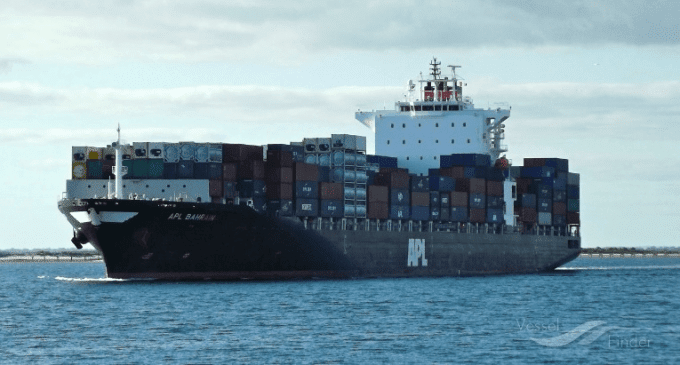Containership owners are playing hardball with ocean carriers on fixture extensions for larger tonnage they have locked into deployment on alliance network loops.
And this could result in some carriers walking away from highly inflated time-charter extensions, leaving cargo commitments uncovered.
Shipbroker Braemar ACM reports that the 8,814 teu Northern Jasper, which, according to eeSea data, is one of 10 vessels deployed on Zim’s ZCP, Maersk’s TP10 and MSC’s Amberjack Asia to US east coast Panama loop, has been extended for just one more round-trip at a huge $175,000 a day.
According to Vesselsvalue data, the 2009-built post-panamax ship has completed a nine-month time charter with the Israeli carrier at a daily hire rate of $135,000, but prior to that, the proven transpacific trade ship had been on charter to Zim for two years at a maximum rate of $29,000 a day.
What arrangements Zim will make to replace the vessel are not clear, but it appears the carrier was not prepared to extend at the significant increase, or that the owner had a better offer from elsewhere for its charter or sale.
In the absence of finding a replacement vessel for the loop, Zim could be obliged to ask its 2M partners to fill the gap and provide a ship, which could mean a revisit to its cooperation agreement terms.
During the company’s Q1 earnings call this month, Zim advised that the average remaining charter duration across its 130-vessel fleet, which is 94% chartered in, was 28 months.However, the carrier confirmed that it operated 11 ships where charters were due to expire by the end of the year.
Zim also advised that there were a further 28 vessels with charters expiring next year, and 34 ships with time charters ending in 2024.
“When we renew a charter, when we fix a vessel, the average charter duration is between three and five years,” said Zim CFO Xavier Destriau, adding that he did not consider Zim too exposed to the spot charter market, and that the carrier must “leave room” for the arrival of the 46 long-term chartered newbuilds being delivered in 2023 and 2024.
Nevertheless, until carriers start to receive their newbuilds during the course of next year, many lines that have a number of ships in their fleet with expiring charters will face the dilemma of agreeing to short-term extensions at highly inflated rates, or handing the vessels back to owners and potentially conceding market share.
Despite acquiring some 200 ships on the S&P market since August 2020, MSC still has a greater exposure to the charter market than its 2M partner, Maersk.According to Alphaliner data, 60% of MSC’s 4.4m teu capacity is chartered-in, compared with Maersk’s exposure to the charter market of 41% of its 4.2m teu capacity.
However, MSC has a massive orderbook of 1.37m teu, versus the 319,000 teu orderbook of its rival.






